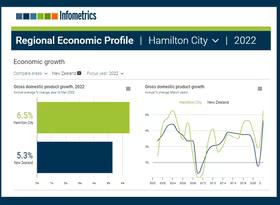Should we take happiness seriously
Happiness is a serious issue, or at least that’s the finding of the recently published World Happiness Report. The United Nations commissioned report is the pinnacle achievement of a movement that believes that happiness can be scientifically measured over time and across countries. The report argues that regular large-scale collection of happiness data will enable us to measure the impacts of policies on well-being and will help governments create the right conditions for happiness to flourish.
The uses happiness as a subjective measure of well-being. It is another attempt to move away from economic growth as the major measure of well-being.
Measuring happiness was pioneered in the small country of Bhutan which has famously adopted the goal of Gross National Happiness (GNH) rather than Gross National Product. In 1972 the king declared the goal of happiness over the goal of wealth. While Bhutan may lead the way in measuring happiness the authorities set a poor example of creating happiness in their kingdom. In the late 1980s, Bhutan expelled nearly one fifth of its population, mainly Hindu, in the name of preserving its Tibetan Mahayana Buddhist culture.
Bhutan uses a complex system of measuring happiness which includes a myriad of indicators measured across various domains of human life. The measurement of happiness as suggested by the happiness report is more subjective. Happiness can be measured in surveys asking a simple question such as ‘All things considered, how satisfied are you with your life as a whole nowadays?’
Happiness surveys are being increasingly incorporated into official data collection systems. The French government published its happiness indicator for the first time in 2009 and the British government has recently established a measure of subjective well-being. The US is investigating the feasibility of measuring happiness and the OECD is drawing up internationally accepted guidelines so its member countries can produce well-being data.
The happiness report finds that the world’s happiest countries are in northern Europe (Scandinavian countries and Netherlands) while West African countries dominate the ranks of the most miserable. New Zealand fares well in the international rankings coming ahead of many countries including Australia, USA and United Kingdom. The report confirms that wealth is only one of the many dimensions contributing to happiness. Jeffery Sachs, one of the authors of the report and well known development economist, points out that that GNP per capita has increased three fold in the United States since 1960, while subjective measures of happiness are unchanged.
There is a complex relationship between income and happiness. In the 1970s Richard Easterlin observed that at a point in time within any society, richer people are on average happier than poorer people. But he also observed that over time, within many societies, the population does not on average become happier when the country’s income rises. This paradox may be explained by the notion that our relative income matters more than our absolute income. Moving up the income ladder gives us a boost in happiness, but if we all move up in tandem then it is easy to overlook the improvement in our lives.
A vast body of research shows that many factors contribute to happiness. There are both external factors such as income, access to work, strong communities, trust, and good governance as well as personal factors such as family experience, gender, and age.
We can deduce some of the factors that make New Zealanders as happy as citizens of other countries at higher levels of income. The happiness report notes that unemployment causes as much unhappiness as bereavement or separation. On that score New Zealand does very well, at times over the last decade having among the lowest unemployment rate in the OECD. Although unemployment has risen through the recession our flexible labour market has kept it at a low level relative to previous recessions.
New Zealanders have higher levels of trust than most wealthy countries. The World Values Survey shows that more than half of New Zealanders agree that ‘most people can be trusted’. High levels of trust mean that people feel secure, they have less to worry about and they see others as co-operative rather than competitive. This trust extends to government and New Zealand consistently features at the top of the international rankings of public sector corruption. Our natural environment and relatively free access to it must also play a role in our happiness.
Measuring happiness may appear to be an overly soft approach to serious economic understanding. Nevertheless, to gain a better understand of a population’s well-being, policy makers need to measure and monitor all its dimensions. It would help to have a better handle on what makes us happy, what makes us miserable and how big an effect each factor has on our happiness.




